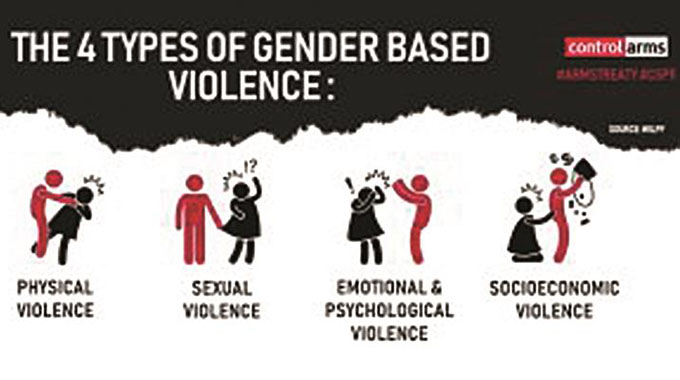Notorious youths turn new leaf to make a difference as change agents

A Zimbabwean woman was asked to form a local group of Sexual Gender Based Violence (SGBV) change agents.
To life-changing effect, she recruited some of her communities most infamous characters.
Tasked with forming a group to volunteer as Behaviour Change Facilitators (BCFs) in an ill-reputed part of Zimbabwe’s Kariba town, Beauty Binari (54) recruited among the infamous members of her community.
Among them was Paddington Matashu, a 23-year-old, who grew up a violent youth and also known for being abusive against girls.
“I was abusive to girls, abused drugs, alcohol, and never shied away from a fight.
“I was leading the youths astray. It was fun then, but I see the errors of my ways now,” said Matashu recently.
Life changed for Matashu when he met Binari in January.
Binari, a volunteer, was putting together a team of 30 Apostolic Women Empowerment Trust (AWET) BCFs for Nyamhunga township.
“For the youths, I targeted the ones I knew caused most trouble,” he said.
“I wanted to pluck out the roots. There is a girl who behaved just like Paddington, I recruited her too.
“They have become my most effective foot soldiers,” she said, breaking into hysterical laughter and exchanging high fives with Matashu on the verandah of her house.”
BCFs such as Matashu are critical in AWET’s quest to achieve Spotlight Initiative goals.
The Spotlight Initiative, launched in 2019, aims to eliminate all forms of violence against women and girls for them to realize their full potential in a violence-free, gender-responsive and inclusive Zimbabwe.
The European Union has committed US$34 million for the programme in Zimbabwe, which is one of eight countries in Africa to benefit from the initiative.
The UN is implementing the programme in partnership with the Ministry of Women Affairs, Community, Small and Medium Enterprises Development and civil society organisations.
In Kariba, the need for transformation is noticeable.
In Mahombekombe suburb, parents and children of different sexes share a single room.
A melting pot of religions and cultures, the town is home to some religious and cultural practices that promote SGBV and harmful practices such as child marriage.
Lack of safe spaces for children renders young ones vulnerable, said Patricia Machiwenyika, a development officer with the ministry of Women’s Affairs, which is working with AWET to implement the Spotlight Initiative.
The outbreak of Covid-19 pandemic worsened an already dire economic situation, leaving schoolchildren idle and open to abuse during the lockdowns.
“It’s also about socialization and the way we are bringing up our children in such conditions. There is no entertainment for children in Kariba.
The town doesn’t even have a proper park or library where children can spend their time. The AWET BCFs are playing an important role by disseminating information in an entertaining way through dramas. We are seeing some change,” said Machiwenyika.
For Matashu and his mentor, Binari, the work has become critical in building an empowered community..
“People know that they are with people who make them safe when they see our orange t-shirts,” she said.
“The pair had just returned from the government social welfare offices to hand over two children left without food or care by a mother who had abandoned them for sex work at nearby Chirundu Border Post.
“When I heard about the case I called Paddington and said ‘let’s go’. I take him everywhere I go so that he learns fast. He has a big job with the youths,” said Binari.
Matashu counsels youths in the area, where unoccupied young people are increasingly taking to drugs, alcohol, violence and sex — a life Matashu used to live with abandon.
Some are still in disbelief when they see him in his new role though.
“They are shocked to see me performing drama with other AWET members. They ask, ‘is that the same guy?’ It’s a good feeling,” he said.
AWET started operations in Kariba in January and has 73 BCFs, said Vimbai Muchenje, who touts Matashu as an example of some of the innovative ways used to change behaviours in the community.
“Those who interact with him, have seen great change, so they are likely to listen to him.
“He has become a role model,” she said.
UNICEF states that part of the Spotlight Initiative’s vision is to “build a social movement of women, men, girls and boys as champions and agents of change at the national, subnational and community levels”.
Kariba’s Matashu and his mentor Binari, who say their bond is now unbreakable, seem a perfect example.
“We are best friends,” said Binari, as a parting shot. “We are one people, inseparable,” shouted Matashu, as the pair again broke into laughter and high fives.—UNICEF










Comments